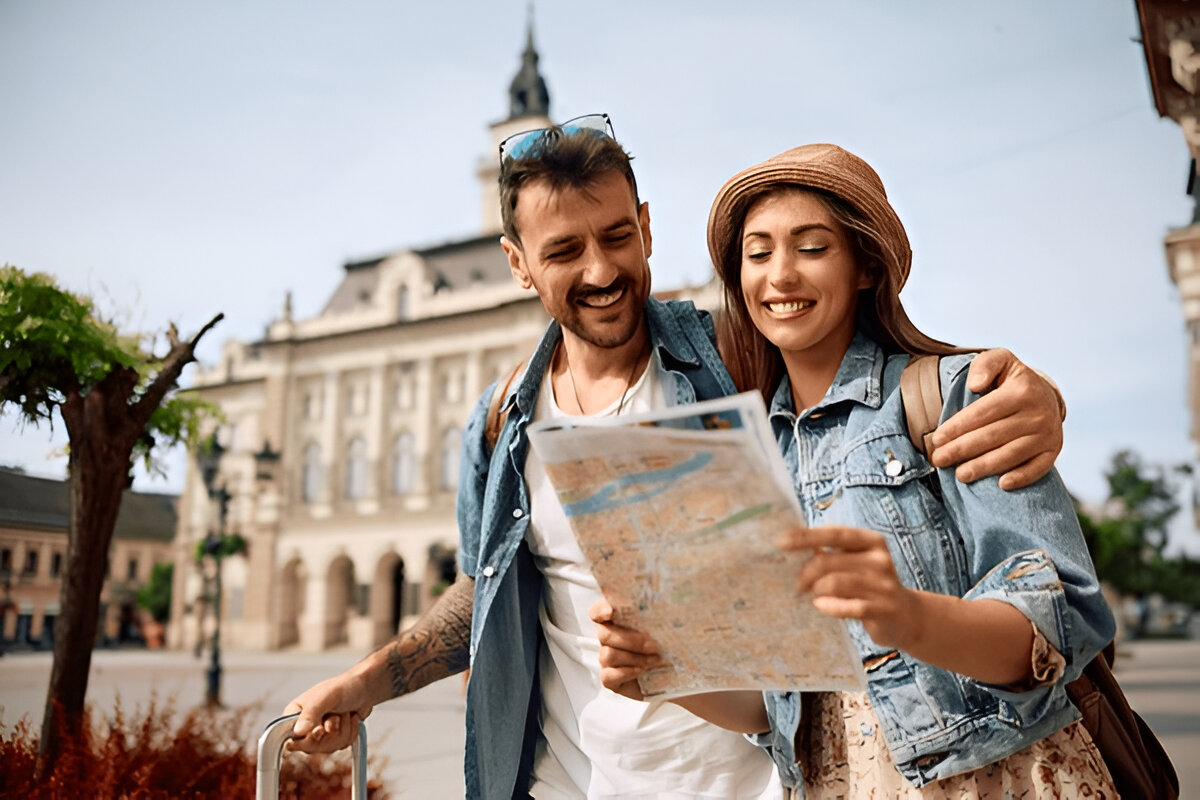
As global travel becomes more accessible, travelers have increasingly sought to explore new lands, immersing themselves in unfamiliar cultures. However, in recent years, there has been a shift towards reverse tourism, where travelers rediscover and reconnect with their own heritage, history, and cultural roots within their home country. This trend is about finding the essence of identity and understanding the significance of local customs, traditions, and landmarks in a more profound way.
In this article, we’ll explore how reverse tourism is helping people reconnect with their cultural roots and engage with their own history. This growing movement not only fosters national pride but also deepens the understanding of diverse cultural landscapes within your own borders.
1. The Rise of Heritage Tourism
Heritage tourism is defined as the act of traveling to destinations where you can engage with the culture, history, and traditions of a region. With reverse tourism, this concept has gained significant popularity as more people begin to explore their local heritage instead of always opting for international travel. Rather than going abroad to understand different cultures, many travelers are now seeking out the traditions, art, and stories within their own country.
Through reverse tourism, people are taking the time to explore their ancestral roots, visit historical sites, and participate in traditional festivals or rituals. In the process, they gain a renewed sense of connection to their heritage, which often leads to a deeper appreciation for the unique culture of their own homeland.
2. Rediscovering Local Monuments and Landmarks
Every country has its share of historic landmarks and monuments that tell the story of its past. While tourists typically flock to these destinations, many locals have not fully explored or appreciated these sites. Reverse tourism encourages travelers to rediscover these monumental places that are often taken for granted.
For instance, many local monuments, castles, temples, or historic neighborhoods have significant cultural and historical value but may not be on the radar of international travelers. Visiting these places helps deepen your understanding of the country’s heritage while supporting conservation efforts that preserve these important landmarks for future generations.
3. Exploring Local Traditions and Customs
Every community has its own set of customs, rituals, and traditions that define its identity. Reverse tourism invites travelers to immerse themselves in these unique cultural practices, whether it’s by learning to cook traditional dishes, participating in local crafts, or attending folk dances or festivals.
For example, you might choose to visit a rural area during a traditional harvest festival or attend a cultural exhibition showcasing ancient craftsmanship. Experiencing these local traditions firsthand allows travelers to develop a more meaningful connection with the cultural landscape they call home. It also provides an opportunity to appreciate the historical context that shaped these customs.
4. Preserving and Sharing Indigenous Knowledge
In many countries, indigenous communities hold a wealth of knowledge about the land, flora, fauna, and sustainable practices that have been passed down through generations. Reverse tourism plays a significant role in helping preserve and share this invaluable knowledge.
By participating in activities like indigenous-led tours, planting initiatives, or cultural exchanges, travelers contribute to the sustainability and preservation of local ecosystems and traditional practices. For example, in some regions, you can visit indigenous tribes and learn about their agricultural techniques, traditional healing methods, and spiritual practices, all of which offer a deeper connection to the land and its cultural legacy.
5. Community-Based Tourism: Empowering Local People
One of the most rewarding aspects of reverse tourism is the opportunity to support local communities. Instead of opting for larger international chains or resorts, reverse tourism emphasizes the value of community-based tourism, where locals are actively involved in the tourism experience.
By choosing to stay in family-run accommodations, dine at local restaurants, or take part in community-led tours, travelers can help create economic opportunities for marginalized communities. This model of tourism ensures that the benefits of travel are distributed more equitably, empowering local people and preserving their cultural traditions.
6. Traveling with Purpose: Engaging in Cultural Stewardship
Reverse tourism encourages travelers to take an active role in the stewardship of cultural and natural resources. This approach not only allows for personal growth but also fosters a sense of collective responsibility for the well-being of the region. Through this movement, travelers can contribute to preservation projects, cultural education, or environmental conservation efforts that protect the heritage they are visiting.
For example, participating in a volunteer tourism program focused on historical site restoration or supporting local museums and art galleries helps keep the cultural stories of the community alive and relevant. Travelers gain a sense of pride and fulfillment by knowing they’ve contributed to the ongoing preservation of their heritage.
7. The Future of Reverse Tourism and Heritage Preservation
As reverse tourism continues to grow, it will likely play an even more significant role in heritage preservation. Countries are increasingly recognizing the importance of preserving their cultural identity while allowing their citizens to engage in travel that is meaningful and locally focused.
In the future, travelers may see the introduction of cultural itineraries that guide them through regions steeped in history, featuring local historians or cultural experts as tour guides. This approach will enable deeper exploration into the richness of local heritage while ensuring that communities benefit from the tourism experience in an ethical and sustainable way.
Conclusion
Reverse tourism provides an invaluable opportunity to reconnect with your cultural roots and rediscover the heritage of your own country. By engaging with local traditions, exploring historic sites, and supporting community-based tourism, travelers contribute to the preservation of the nation’s cultural legacy and enhance their own understanding of the rich history that shaped their homeland.
If you’re looking for a more meaningful travel experience, consider turning your attention to the wealth of culture and heritage that exists within your borders. Not only will you enrich your own knowledge, but you’ll also play a vital role in preserving your country’s traditions for future generations.






